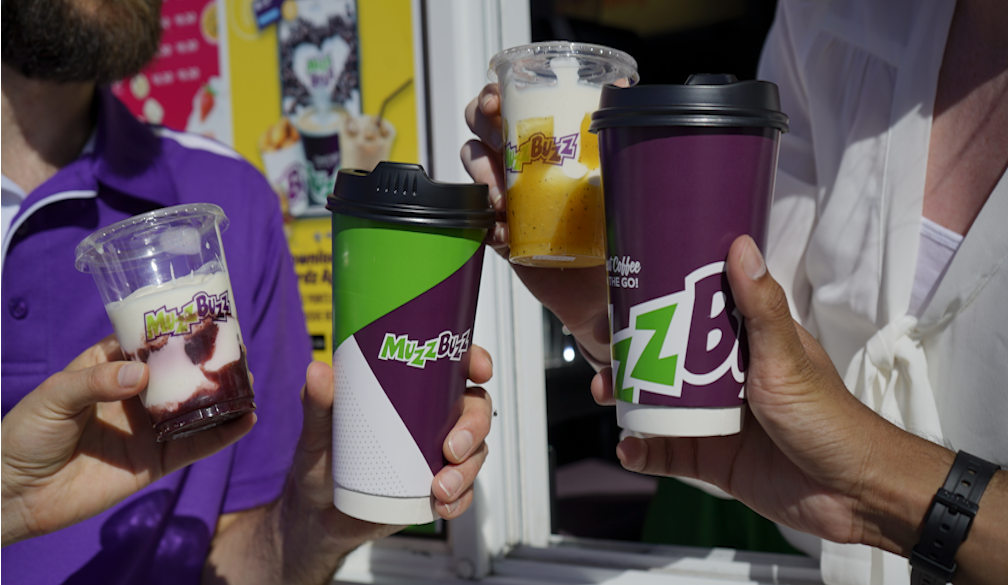Corporate Catering Essentials: Elevating Your Business Events

In today's dynamic business world, corporate events have become a cornerstone for networking, collaboration, and celebrating achievements.
A critical aspect that often determines the success of these gatherings is the quality of corporate catering and corporate entertainment.
It's not just about feeding your guests; it's an opportunity to impress clients, boost employee morale, and create an environment conducive to productive and enjoyable interactions.
The choice of food, its presentation, and the overall catering service can significantly influence the event's atmosphere and leave a lasting impression on attendees.
This blog post delves into the essentials of corporate catering, highlighting its importance in elevating business events.
From selecting the right menu to understanding the latest trends and challenges, we will guide you through the nuances of creating memorable and successful corporate gatherings through exceptional catering.
Understanding Corporate Catering:
Corporate catering is a specialized service that provides food and beverages for business-related events.
Distinct from general event catering, it focuses on the unique needs of corporate functions, including conferences, meetings, seminars, and company celebrations.
This type of catering is tailored to accommodate the formal tone and structured nature of business gatherings, often adhering to a stricter schedule and professional atmosphere.
It's not just about satiating hunger; corporate catering aims to enhance the overall event experience, fostering an environment of professionalism and hospitality.
Understanding the nuances of corporate catering is essential for anyone planning a business event, as it plays a pivotal role in the event's success and the company's image.
Key Elements of Successful Corporate Catering:
Successful corporate catering is an art that combines culinary expertise with an understanding of business event dynamics.
The following are key elements that contribute to its success:
- Quality and Variety of Food: The cornerstone of any catering service is the quality of food offered. It needs to be fresh, flavourful, and appealing to a diverse palette. Variety is equally important to cater to different tastes and dietary restrictions. A mix of classic and contemporary dishes often works best.
- Presentation and Professionalism: The way food is presented can make a significant impact. It should be aesthetically pleasing, aligning with the event's theme and corporate standards. Professionalism in service is non-negotiable. Staff should be courteous, well-trained, and attired to reflect the event's tone.
- Customization for Dietary Needs: With increasing awareness and sensitivity towards various dietary requirements, offering a range of options including vegetarian, vegan, gluten-free, and allergy-friendly choices is essential. This inclusivity ensures that all attendees feel valued and catered to.
- Seamless Service: Efficiency in service, from set-up to clean-up, is critical. The catering team should operate smoothly, causing minimal disruption to the event's flow. This includes timely delivery, quick response to guest requests, and maintaining cleanliness and hygiene throughout the event.
- Adaptability and Innovation: Caterers need to be adaptable to different corporate environments and capable of offering innovative solutions to make each event unique. This could involve interactive food stations, themed menus, or incorporating branding into the culinary experience.
- Sustainability: A growing concern for many businesses is sustainability. Caterers who source locally, reduce waste, and use eco-friendly practices are increasingly sought after.
By focusing on these key elements, corporate catering can significantly enhance the overall experience of a business event, leaving a lasting impression on attendees and reinforcing the company's commitment to quality and professionalism.
Planning and Coordination:
Effective planning and coordination are pivotal for the success of corporate catering. Here’s how to navigate these aspects:
Selecting the Right Catering Service:
- Research and shortlist caterers with experience in corporate events.
- Check reviews and references for reliability and quality.
- Consider caterers who offer flexibility and customization.
Importance of Early Planning:
- Start planning well in advance to ensure availability and better deals.
- Early coordination allows time for menu sampling and adjustments.
Communication with Caterers:
- Clearly communicate your event’s needs, expectations, and any special requests.
- Discuss the event schedule, number of attendees, and service style (buffet, plated, etc.).
- Keep the lines of communication open for any last-minute changes.
Managing Budgets:
- Have a clear budget in mind and discuss it with the caterer.
- Understand what’s included in the cost (e.g., equipment, staffing, setup).
- Look for packages or negotiate to get the best value without compromising quality.
Negotiating Contracts:
- Review the contract details thoroughly, including cancellation policies and payment terms.
- Ensure all agreed-upon services are clearly listed in the contract.
Coordination on the Day of the Event:
- Assign a team member or hire an event planner to coordinate with the catering team.
- Ensure there’s a point of contact available for any last-minute coordination.
Proper planning and coordination with your chosen caterer are essential to ensure that the corporate event runs smoothly and leaves a positive impression on all attendees.
This process not only involves meticulous organization but also building a good working relationship with the caterer to achieve the desired outcome for your event.
Menu Planning for Corporate Events:
Crafting the perfect menu for a corporate event is a delicate balance of taste, presentation, and practicality. Here are key considerations to guide you in menu planning:
- Understanding the Event's Purpose and Attendees
- Incorporating Seasonal and Fresh Ingredients
- Catering to Special Diets
- Balancing the Menu
- Considering the Event Schedule
- Interactive and Thematic Elements
- Tasting and Finalizing the Menu
Menu planning for corporate events is more than just selecting dishes; it's about creating an experience that complements the event's goals and enhances the overall ambiance.
By paying attention to these details, you can ensure that the catering at your corporate event is memorable and enjoyable for all attendees.
Latest Trends in Corporate Catering:
Corporate catering is continually evolving, influenced by culinary trends and changing workplace dynamics. Here are some of the latest trends shaping the industry:
Health-Conscious Menus:
- Increasing focus on healthy, nutrient-rich food options.
- Incorporation of superfoods, salads, and low-calorie dishes.
Sustainability and Eco-Friendliness:
- Growing preference for caterers who use locally sourced, organic ingredients.
- Reduction of waste through sustainable practices like compostable utensils and minimal packaging.
Global Cuisine:
- Menus featuring international flavours cater to diverse tastes and cultural interests.
- Authentic dishes from various countries are becoming popular.
Customizable and Interactive Food Stations:
- Interactive stations where guests can customize their meals (taco bars, build-your-own salad stations, etc.).
- Adds an element of fun and engagement to the dining experience.
Fusion Cuisine:
- Combining elements from different culinary traditions to create innovative dishes.
- Fusion cuisine can add an unexpected and delightful twist to corporate events.
Small Bites and Tapas-style Menus:
- Shift towards smaller, more varied portions allowing guests to try multiple dishes.
- Ideal for networking events where guests prefer to mingle rather than sit down for a full meal.
Plant-Based Options:
- With the rise in vegetarian and vegan lifestyles, plant-based menus are becoming a staple.
- Caterers are getting creative with plant-based proteins and dairy alternatives.
Specialty Coffee & Drinks:
- High quality, barista made coffee, alongside various other hot and cold drink beverages.
- Incorporation of a mobile coffee cart to deliver the service seamlessly on the day.
These trends reflect a broader shift in corporate catering towards health, sustainability, and global flavours.
By staying abreast of these trends, companies can ensure their catering choices resonate with modern values and diverse palates, making every corporate event a memorable experience.
Conclusion:
In conclusion, corporate catering is not just a service but an integral part of the business event experience.
It has the power to transform meetings and conferences into memorable and enjoyable occasions.
By focusing on quality, presentation, customization, and embracing the latest trends, companies can significantly elevate their events.
Catering is an opportunity to showcase a company's attention to detail, commitment to quality, and care for attendee satisfaction.
As we've explored, the right approach to corporate catering can leave a lasting impression on clients and employees alike, fostering a sense of community and professionalism that resonates beyond the event itself.





















